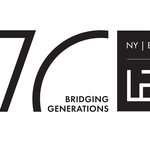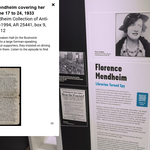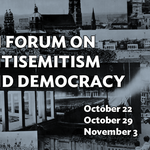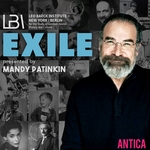Gerald Westheimer in Conversation: A Vision for Scholarship on German-Jewish History

- Autor
- David Brown
- Datum
- Mi., 25. Mär. 2015
Gerald Westheimer (b. 1924 in Berlin) established the Gerald Westheimer Career Development Fellowship in 2008 to support scholarship on the history and culture of German-speaking Jews by offering financial support to recent PhDs early in their faculty careers. Based on the success of the program, Dr. Westheimer has provided a new, generous gift to continue supporting German-Jewish scholarship well into the future. We asked Westheimer about his childhood in Berlin, his career as one of the world’s top researchers on the subject of human vision, and his commitment to preserving German-Jewish history.
You are Professor of Neurobiology and Clinical Professor of Optometry at UC Berkeley. How would you describe your field and your accomplishments in layman’s terms?
I’m a vision scientist. That wasn’t really a career path when I started optometry school 70 years ago, but now there is a widely recognized field that studies human vision from all points of view. I’m most identified with my research into hyperacuity, which is a term I coined for a phenomenon related to how we perceive details. It turns out that we can see details that are even finer than the optics of the eye allow because the brain employs clever cognitive tricks to disambiguate the signal.
When did you develop your interest science and vision in particular?
I was nine years old when Hitler came to power, and my parents soon transferred me to the Jewish Mittelschule in the Große Hamburgerstraße due to the anti-Semitism that pervaded the public Gymnasium. I was fascinated by optics and telescopes, and when I was 12 or 13 and had to write a school essay about a famous person, I chose Helmholtz, having checked out his popular scientific lectures from the school’s library.
My family’s experience in Germany, where all Jewish academics and civil servants were removed virtually without dissent from the legal, academic, and professional establishment, led to the firm conviction that I should pursue a career in which one could succeed outside the confines of government and institutions. Optometry seemed to fit the bill, and after we emigrated to Australia in 1938 I enrolled in the optometry diploma course at the Sydney Technical College.
What role did Judaism play in your upbringing?
My family was religiously observant, but there are degrees of observance. We kept kosher, but didn’t necessarily have two sets of dishes. What is interesting to me is that we were very consciously Jewish in a way that many Jews in Germany weren’t. In My German Question, the historian Peter Gay, who was actually in my school class in Berlin for about six months, writes that he was utterly unaware of Judaism until 1933. By contrast, my father’s family, even though it had probably been in Germany for 2,000 years, had stubbornly clung to Judaism. My parents identified as Germans, but they also knew that as Jews they did not have an equal status in Germany. This was very openly discussed in our home, and I was fully aware of the precarious status of Jews in Germany from my earliest consciousness.
You have lived in the United States for decades, but you’ve maintained your Australian Citizenship. Why?
I have very positive feelings about Australia. When we left Germany, it was too late to get the affidavit required to go to the United States. Australia gave us a chance. My brother and I, at 14 and 16, were suddenly in the position of making all the decisions about our future and mediating the culture for our parents, but we did very well there.
Did that role reversal—being responsible for your family and your own future as a teenager—feel like a hardship?
When you’re young, you don’t realize you are being disadvantaged. The reason why such things are manageable when you are young is that there is always the future to look forward to.
Your career was in the natural sciences, but you have made a major commitment to support scholarship in the humanities on German-Jewish history. Why?
A German-Jewish home and upbringing at the beginning of the 20th century are my roots and heritage; they informed and guided my attitudes, behavior and accomplishments. As much as I identify with the scientific discipline in which I made my career, with Australia as the country that shielded us from the holocaust, and with life in the United States for providing undreamt of opportunities to develop and deploy my talents, it is this heritage that I take pride in and want to ensure that a record of its history and collective achievements be preserved.
How does a patriotic German Jew feel about Germany today?
Some years ago, I accepted an honorary degree from the University of Tübingen, and that caused a lot of thinking on my part. It was not an automatic decision. I’m one of those people who still won’t buy a German car, and I would never seek to reestablish my German citizenship.
The historian Atina Grossmann wrote a wonderful article about people like me. She describes people who create their own intellectual horizon that they carry with them, which is made up of elements they select from their various environments. If you look at the books in my library, it’s a good reflection of that. It’s full of German literature, among many other things.
Aktuelles





